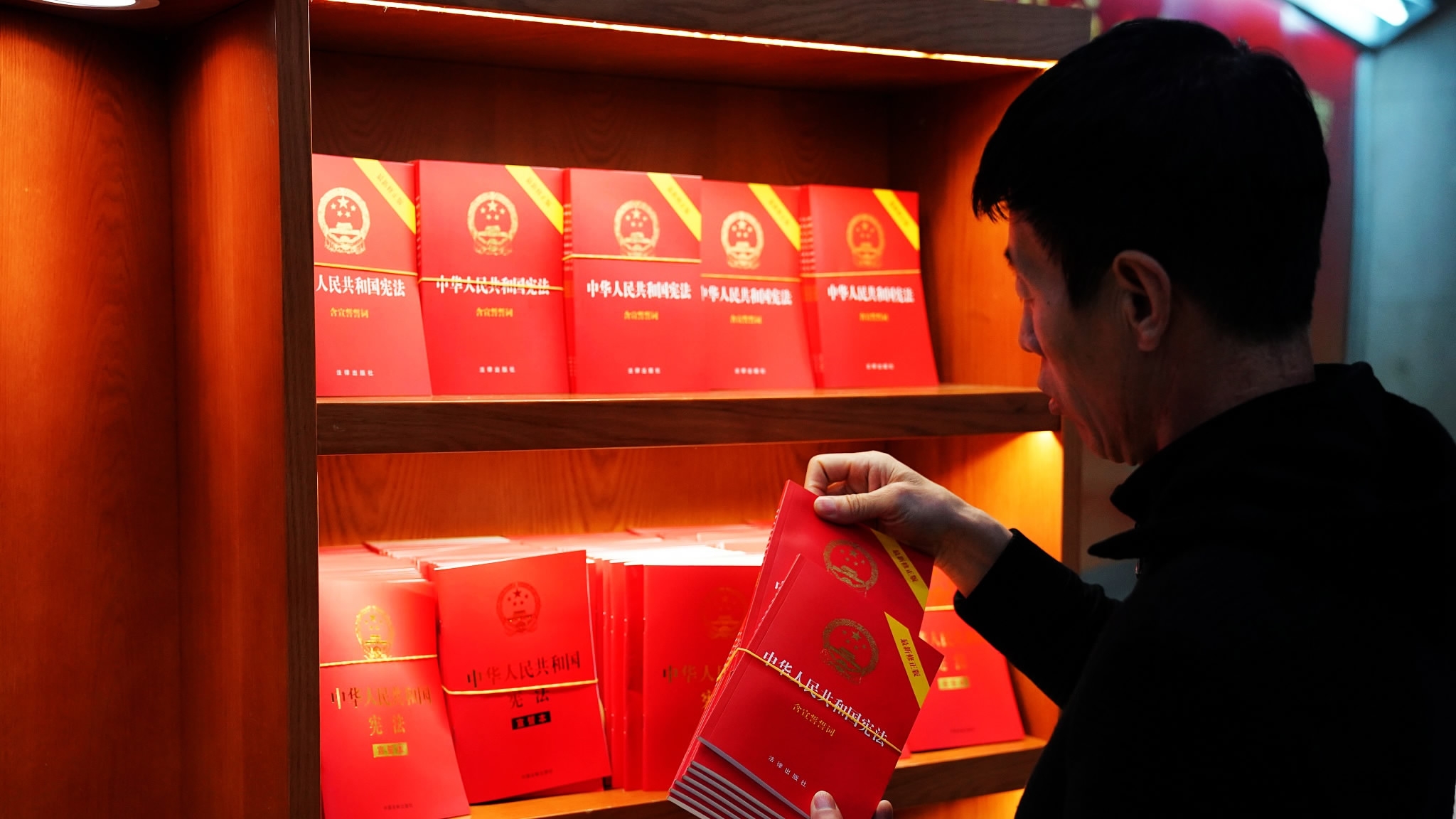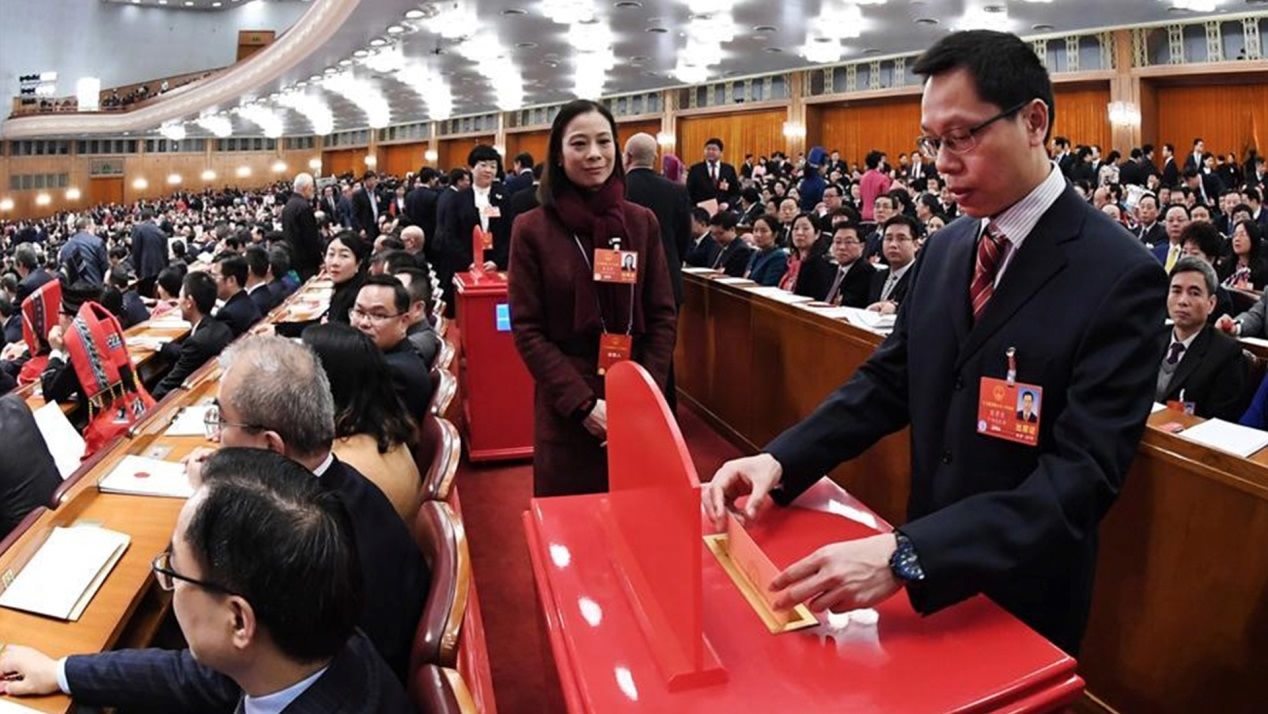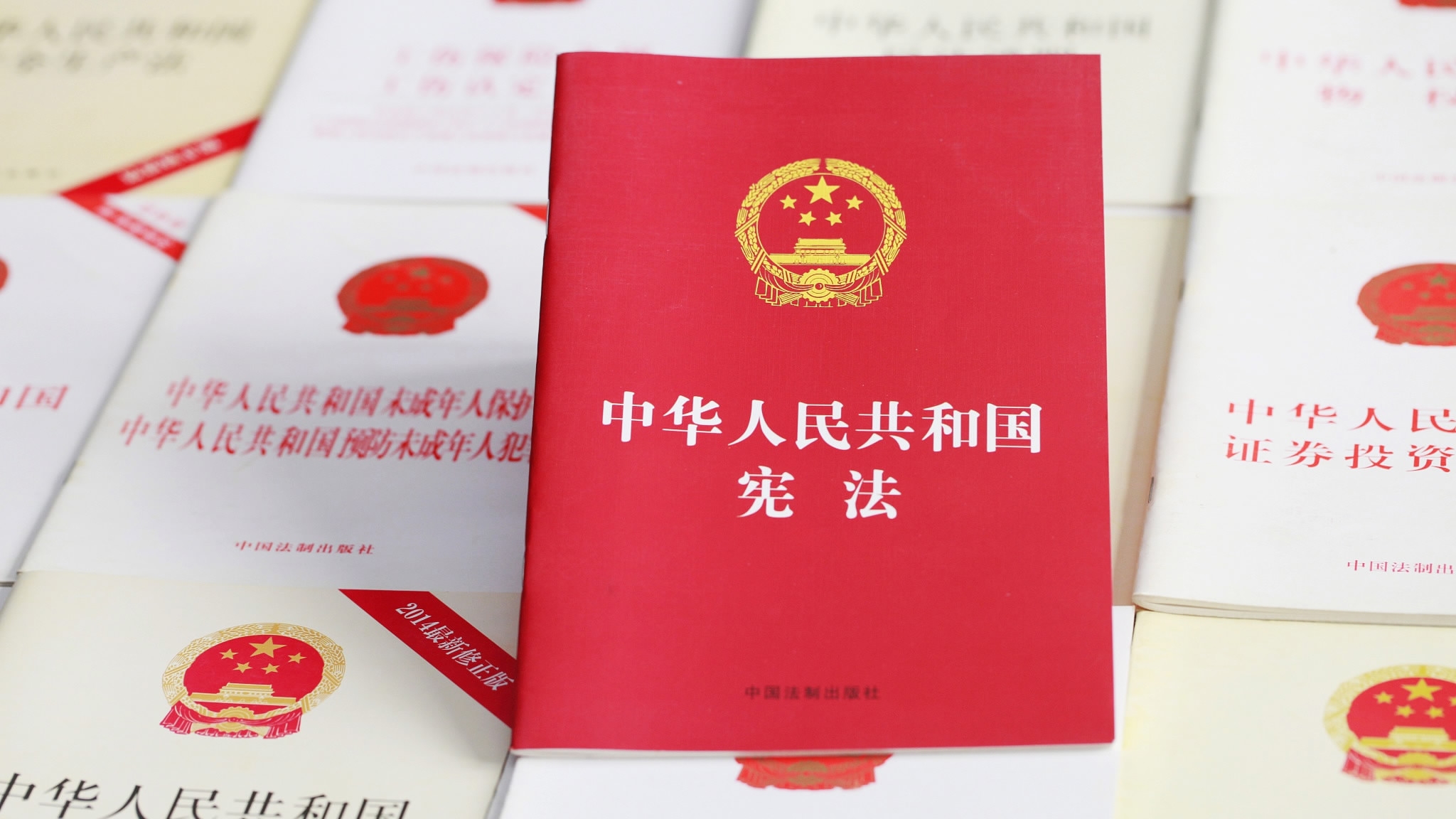
Opinions
17:54, 13-Mar-2018
Closer to China: Constitutional amendments to help secure China’s future
Robert L. Kuhn

As China’s political season draws on apace, arguably the most significant development to have emerged from this year’s Two Sessions was an amendment to the country’s constitution putting an end to two-term limits for the presidency and vice-presidency.
This and other revisions aim to solidify the Communist Party of China’s position at the forefront of China’s ongoing development, with General Secretary Xi Jinping firmly at its core.
Amending a constitution is big news in any country, and the changes attracted much interest from foreign media outlets, some of whom were critical of the decision to remove presidential term limits.
An NPC deputy Wang Junfeng, who is also president of the All China Lawyers Association, said the revised constitution will help China achieve its many ambitious developmental goals.

A deputy to the 13th National People's Congress (NPC) casts his ballot on a draft amendment to the country's constitution at the third plenary meeting of the first session of the 13th NPC in Beijing, March 11, 2018. /Xinhua Photo
A deputy to the 13th National People's Congress (NPC) casts his ballot on a draft amendment to the country's constitution at the third plenary meeting of the first session of the 13th NPC in Beijing, March 11, 2018. /Xinhua Photo
“In this unique period of development, we need strong Party leadership in order to provide a united social force to deliver our national mission and promote the country’s progress. This may be difficult for a lot of our friends in the West to understand, but we are proud of our developments over the past few decades, which have been achieved thanks to similar national conditions and policies. Therefore, strengthening the Party leadership at this critical period is in line with the will of the people.”
Another notable amendment to the constitution was the establishment of a new supervisory committee that will work in conjunction with the Party’s anti-corruption agency.

VCG Photo
VCG Photo
Since assuming the role of general secretary in 2012, Xi Jinping has promised to root out corruption at all levels of the Party, from lowly “flies” to high-ranking “tigers.”
An NPC deputy Zhang Sujun, who is former Executive Vice Minister of Justice, said the new measures would help China consolidate and expand its ongoing anti-graft crackdown
“We have made historic progress and undergone a paradigm shift in the campaign of anti-corruption. It is important to push reform to the next level, from treating the symptoms to treating the cause. Revising the supervision system will consolidate the results of treating the symptoms of corruption. It also serves a purpose to push the anti-corruption campaign more comprehensively and effectively.”
While China has achieved a huge amount since it began to reform and open up in the late 1970s, the country still has many challenges to overcome and many goals to achieve. The country’s leadership will no doubt be hoping that the newly-announced constitutional amendments will help China achieve General Secretary Xi Jinping’s stated aim of building a moderately prosperous society in all respects by 2020.

SITEMAP
Copyright © 2018 CGTN. Beijing ICP prepared NO.16065310-3
Copyright © 2018 CGTN. Beijing ICP prepared NO.16065310-3